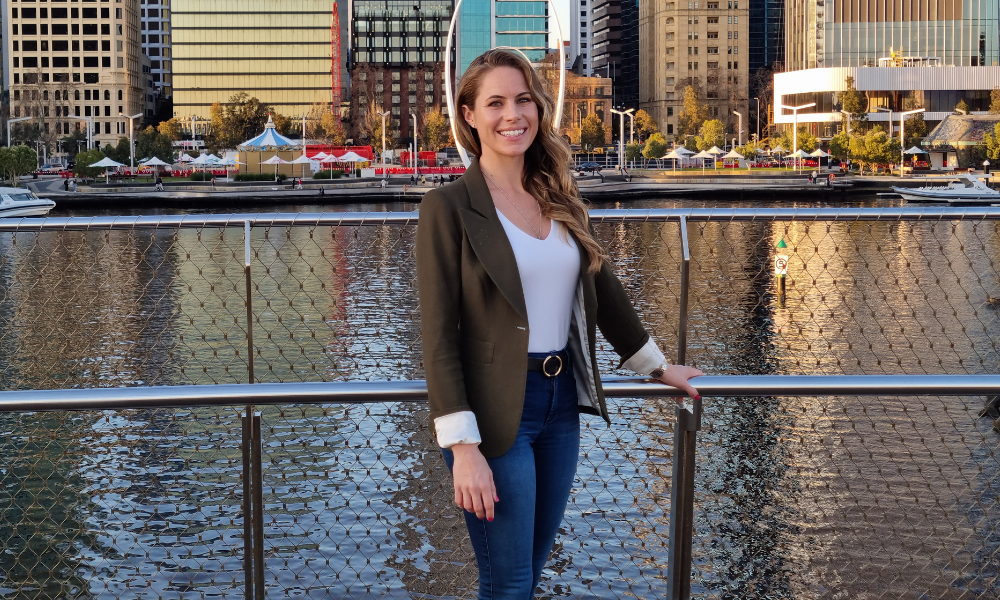Hunger for growth also a factor, says business owner

A mortgage broker says starting her own business was born out of a desire to help people and to push her career to the next level.
Brittni McGuinty (pictured above), director of new Perth-based brokerage Novalend, worked in a mortgage support role for three years before she moved into broking.
Despite mortgage broking not being a widely recognised industry in her birthplace of Canada, McGuinty said she gravitated towards it.
Upon moving to Australia eight years ago, McGuinty said she was struck by the disproportionate number of men in high-ranking finance roles. In Canada, the hiring decision is based on whoever is most qualified to do the job, she said.
Talking to MPA about why she got into broking and what prompted her to start her own business, McGuinty said for her, helping people was the key driver. She also felt she was pigeonholed as a female and working in administration.
“You can walk into a stock broking and financial planning firms and brokers, advisers and executives are predominantly men sitting in offices, whereas women are commonly in admin-heavy roles, which I found really surprising here,” McGuinty said.
While McGuinty was quick to point out that opportunities for females do exist in the finance sector of Australia, there was a noticeable difference between the two countries.
“Ï was exhausted being put into that box … that’s not to say there’s anything wrong with admin, but for me, I’m hungry for growth, to experience more and push the envelope.”
Read next: Breaking down the gender barriers
Having been a business owner for a little over one month, McGuinty said it took a conversation with her cousin, who works in marketing, to realise she missed mortgage lending. A snap decision saw them agree on the brand name of Novalend and design a logo.
Being female and a director of her own company that helps others is inspiring, McGuinty said.
“You don’t want to go to university thinking ‘I want to be a mortgage broker,’ but why not?” she said. “Because it is really fulfilling.”
Embarking on her new career, McGuinty is focusing on residential lending, describing it as the “heart and soul” of what she does. She’s open to branching out into commercial and asset finance, but said she was also aware of the importance of developing a solid base first.
Her business model is to provide in-house mortgage lending for financial planners who don’t have an in-house mortgage broker and a referral network. With a goal to “help everybody”, McGuinty said not being restricted to one company was an advantage.
“It gives them the opportunity to provide that in-house advice – they don’t have to pay for the cost of having their own broker, but they have the benefit of being able to offer the service,” McGuinty said.
Business partners could receive a weekly visit where she would talk to their clients about their mortgage requirements. Alternatively, McGuinty said she was working on a portal to enable their clients to book an appointment with her directly, choosing whether to hold the meeting one-on-one, or before or after their meeting with the financial planner.
“It gives the financial adviser support that they may not have, or may not realise they need,” McGuinty said. “If I can educate them and their staff that mortgage broking goes hand-in-hand with wealth creation, then we can help each other.”
McGuinty said being a woman could be an asset in the mortgage industry.
Read next: Being female an opportunity, brokers say
“People like dealing with women in a lending capacity … studies show [women] are more empathetic on average and people gravitate towards that,” McGuinty said.
She likened being female to a chameleon – when needed, women could be professional, yet also be warm and empathetic.
“I used to deal with a lot of parents post-separation, and you’re not just their broker, you’re a sounding board – everything is confidential, you’re discussing their finances and it’s already an intimate conversation,” she said.
McGuinty said that in getting her business off the ground, she’d received significant support from her aggregator, Nectar Broker Brands [a sub-aggregator of PLAN Australia], and the wider mortgage industry.
“There’s been an overwhelming amount of support ... I have no doubt I’ll come across the odd person who views me as support, but I’m a bit stubborn so I’ll keep going,” she said.
According to the MFAA Industry Intelligence Service Report (13th edition), there were 3,249 female brokers, representing just over a quarter of total broker numbers.
Acknowledging that the number of females had marginally declined since the research started in 2015, MFAA CEO Anja Pannek said calling out the need for diversity would remain a focus for the MFAA.



